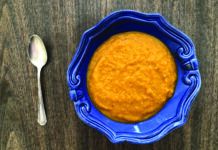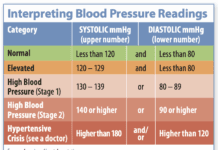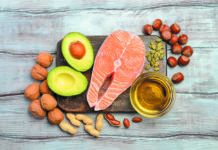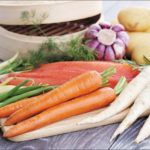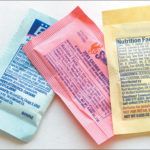Home Search
Cancer - search results
If you're not happy with the results, please do another search
51 Healthy Foods You Can Say “YES” To
Hardly a day goes by, it seems, without the news media reporting some food thats been found to be bad for you. One day its processed meats; the next, its baked goods made with trans-fatty acids. Faced with this litany of donts, you can start to wonder whether any food is OK to eat.
Beyond Pumpkin: Harvest the Health Benefits of Winter Squash
This seasons culinary and cultural spotlight shines on the pumpkin, but the jack-o-lanterns less-celebrated cousins-winter squash-are also at their peak of flavor and nutrition. Like the pumpkin, butternut, acorn and other winter squash are technically fruits, but are consumed more like vegetables. Though they vary by species, winter squash are at least as nutritious as pumpkin and deliver more nutrients than summer varieties like zucchini. Its no wonder the pre-Colombian Native Americans who first cultivated winter squash buried them with their dead to provide nourishment for the journey to the afterlife.
Extra Magnesium May Boost Your Physical Performance
Getting more magnesium might help you maintain mobility as you age. A new Italian randomized trial reports that daily supplementation with 300 milligrams of magnesium improved physical performance in older women. Among the benefits was a faster gait speed-a key factor in diagnosing sarcopenia, the frailty associated with loss of lean muscle mass in aging.
Q. Your August newsletter article on BMI and age was very interesting. How much...
AIrwin H. Rosenberg, MD, editor of the Tufts Health & Nutrition Letter, replies: I think the preferred height measure is the pre-aging one or, as is sometimes done, use of knee height (adjusted to fit the BMI formula), which doesnt shrink with compressed spine. A smaller height measurement due to spinal compression with aging would indeed shift a BMI calculation to a lower value and project a safer level than would be real based on…
Q. I read about a study that found individuals with a high intake of...
Q. I read about a study that found individuals with a high intake of vitamin E had a lower risk of developing Alzheimers disease. I have been taking 1,000 IU daily. Now I read in your newsletter (June 2014) that men taking vitamin E supplements were more likely to get prostate cancer. What should I do?
Maximize Your Foods Nutrition by Healthy, Easy Steaming
It may be time to dig out that seldom-used steamer basket, or the bamboo steamer your cousin gave you as a birthday gift that you never opened. Your cousin was right when she said steaming is a healthy way to cook-no added fat required, zero potential carcinogens from charring, and minimal loss of nutrients.
Best Food Choices to Reduce Your Cancer Risk
Reporting on the annual meeting of the American Association for Cancer Research earlier this year, the New York Times noted, The latest results about diet and cancer were relegated to a single poster session and a few scattered presentations. Previous high hopes that specific dietary changes might combat cancer risk have largely evaporated, the Times reported, in the wake of more thorough epidemiology. The report summed up: About all that can be said with any assurance is that controlling obesity is important, as it is for heart disease, type 2 diabetes, hypertension, stroke and other threats to life. Avoiding an excess of alcohol has clear benefits. But unless a person is seriously malnourished, the influence of specific foods is so weak that the signal is easily swamped by noise.
Smart Substitutes for Sugar
Sugar is in the spotlight as a key contributor not only to the obesity epidemic but also to chronic diseases, with the US Food and Drug Administration (FDA) for the first time proposing requiring food companies to list added sugars on the Nutrition Facts label. On average, US adults consume 14.6% of their calories from sugars not naturally occurring in food-in everything from sodas to snack foods, from cereals at breakfast to packaged entres at dinner.
Reality Check on Resveratrols Health Benefits
Proponents of resveratrol, the antioxidant compound found in red wine and grapes whose near-miraculous health claims have created a $30 billion supplement industry, must have felt a bit of whiplash lately. First, a new study of dietary intake of resveratrol in the Chianti wine-making region of Italy made headlines by reporting no correlation with longevity or lower risks of cancer or cardiovascular disease. Resveratrol Health Benefits a Myth?, one news article asked. Then, just three weeks later, another new study reported that resveratrol supplements improved memory in overweight older people-raising hopes once again.
Pick Peaches for Healthy Nutrients
Fresh peach season provides a fuzzy-skinned, sweet and juicy invitation to enjoy the nutritional goodness of these favorite fruits. Peaches are low in calories and glycemic index, a good source of vitamins, phytonutrients and fiber, and may even help fight cancer.


